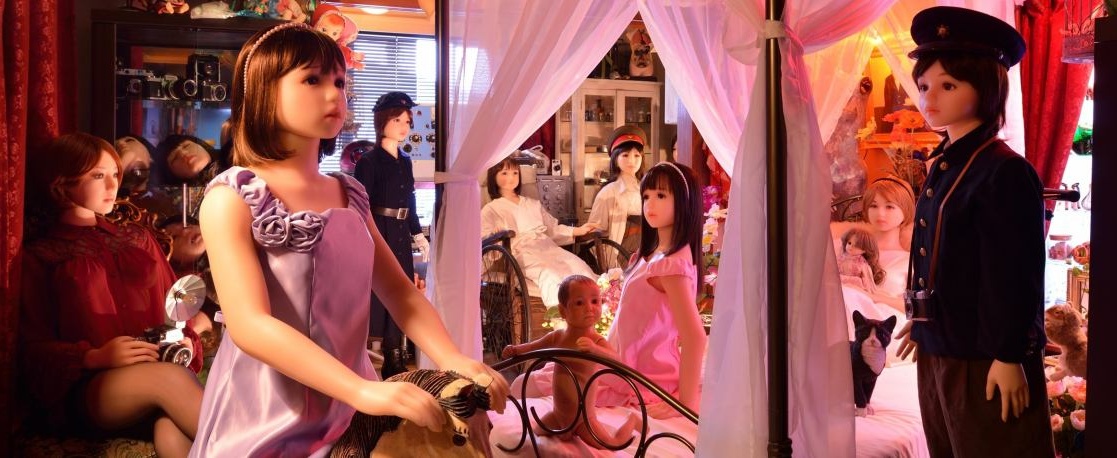Tokyo's Top 5 Bizarre Museums!

Japan is known for its quirky culture, which manifests itself in many different ways across the nation's capital. A great way of experiencing Tokyo's eccentric side is to visit one of its most bizarre museums. With exhibitions on kites, parasites and sewage (yes, sewage) here are five of the most bizarre museums that Tokyo has to offer.
By DavidThe Meguro Parasitilogical Museum
As strange as its name, the Meguro Parasitological Museum is not for the faint of heart! Unsurprisingly, the Meguro Parasitological Museum is haven for those who are fascinated by, well... parasites.
The museum was initially developed by Dr. Satoru Kamegai as a research center devoted primarily to the science of parasitology in 1953. Nowadays it's a mini exhibition center displaying 300 separate parasitological specimens and related materials spread over it's two relatively small floors. The displays are often accompanied by educational tools such as instructive videos or special publications that have been developed in-house. If you want to know more about parasitic diversity or are thirsting for a more thorough understanding of both human and zoonotic parasites (or just want to see some pretty weird stuff!), then this museum in Meguro is the place to go.
Address: 4-1-1 Shimomeguro, Meguro 153-0064, Tokyo Prefecture
Opening Hours: Wednesday to Sunday, 10 a.m. to 5 p.m.
Price: Free! Donations encouraged.
The Salt & Tobacco Museum
Tokyo's Salt and Tobacco Museum begs a couple of questions: Why salt? Why tobacco? Why put them together? Considering ancient Japan wasn't particularly abundant with salt or tobacco, since tobacco was only introduced to the nation in the 16th century, it's even stranger.
The museum was founded in 1978 by the Japan Monopoly Corporation (now Japan Tobacco Inc.) to celebrate Japan's history and culture surrounding both salt and tobacco. Although they might seem like rather niche topics, both products have roots in almost every culture around the world, and the exhibits contained in the museum are quite informative. It only takes about an hour or so to explore the entire museum, but it's another offbeat option if you're hopping around Tokyo's awesome Sumida ward.
Address: 1-16-3 Yokokawa, Sumida 130-0003, Tokyo Prefecture
Opening Hours: Open Tuesday through Sunday from 10 a.m. to 6 p.m.
Price: ¥300 for adults.
The Tokyo "Rainbow" Sewerage Museum
Next, we have a museum dedicated to the unspoken hero that sleeps beneath every city—sewers! The Tokyo Metropolitan Government Bureau of Sewerage are very proud of the complex and extensive underground sewer system that they have created for the greater Tokyo area—so proud in fact that they decided to open up a museum in honor of that creation! The Tokyo "Rainbow" Sewerage Museum is located in the Odaiba area, and at first glance may seem a far cry from the neomodern architecture, exhibitions and entertainment outlets that have flooded the Tokyo Bay area in recent years.
Although it might not spring forth as a "must-do" activity, the museum actually has some surprisingly fun, interactive experiences that the whole family can enjoy. The museum also contains the usual information and educational trimmings that you would expect—with focus on the importance of water safety, and a celebration of the engineering prowess that is involved in creating a water filtration system that was built to serve the entirety of one of the world's busiest metropoles. Plus, if you're in the area you can check out some of Tokyo's most famous landmarks, like the iconic Rainbow Bridge and the hulking Gundam Statue.
Address: Koto 2-3-5 Ariake, Ariake Water Sewage Center 5F
Opening Hours: Tuesday to Sunday, 9:30 a.m. to 4:30 p.m.
Price: Free!
The Kite Museum Tokyo
The Kite Museum Tokyo is brought to us by the Japan Kite Association, and is another surprisingly interesting museum that focuses on the history and culture of a seemingly banal everyday object. The museum occupies the fifth floor of the Taimeiken restaurant in Tokyo's Nihonbashi area. The former owner of the popular restaurant, Shingo Modegi, was a true kite enthusiast, and so decided to self-fund a museum that pays homage to his favorite pastime.
Japanese craftsmanship is typically lauded for its high quality, and this also applies to the construction of kites! So even though the level of information is lacking, what you will find is a vast collection of hand-crafted kites from Japan (and other Asian countries), with particular emphasis on the use of classic Japanese materials such as bamboo and washi paper. The kites—which are clinging to basically every surface—are often accompanied by a smattering of traditional, kite-based artworks around the museum's somewhat cramped confines.
Address: 1-12-10 Nihonbashi, Chuo-ku Tokyo 103-0027
Opening Hours: Monday through Saturday, 11 a.m. to 7 p.m.
Price: ¥200 for adults.

http://blog.livedoor.jp/hyodo_shasin/
In this case the term "museum" might be a bit of a misnomer, but The Love Doll Museum in Saitama Prefecture is just too bizarre to be not included. Perception of "love dolls" has changed from items found solely in Japan's seedy sex industry to works of art that are used by many Japanese men as a comfort and means of intimacy. Photographer and doll enthusiast Yoshitaka Hyodo turned his two-story home in the sleepy suburbs of Saitama into a walk-through celebration of Japanese love dolls, an arresting gallery to one of the country's most misunderstood industries and somewhat unrecognized subcultures.
Some may find Hyodo's collection downright creepy, others will find it strangely fascinating, but one thing is for sure—this is one of the most bizarre museums you will ever have the chance to visit. However, given that this display is in his home, Hyodo only opens up the museum to the public on a few separate occasions each year. Information can be found on his blog (which is in Japanese), or reservations can be made via this email address—hey@mbc.nifty.com.
Address: Address is received upon making a reservation.
Opening Hours: Select occasions throughout the year. (As of publication, the next exhibition is open from December 31, 2018 to January 4, 2019.)
Price: ¥1,000, although it's apparently free for love doll owners.


